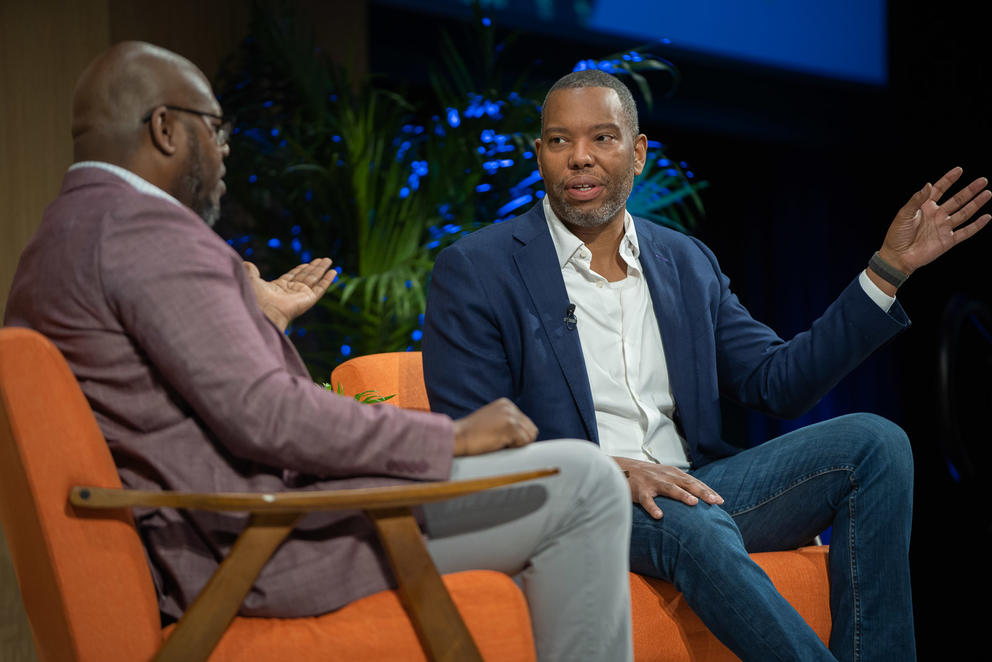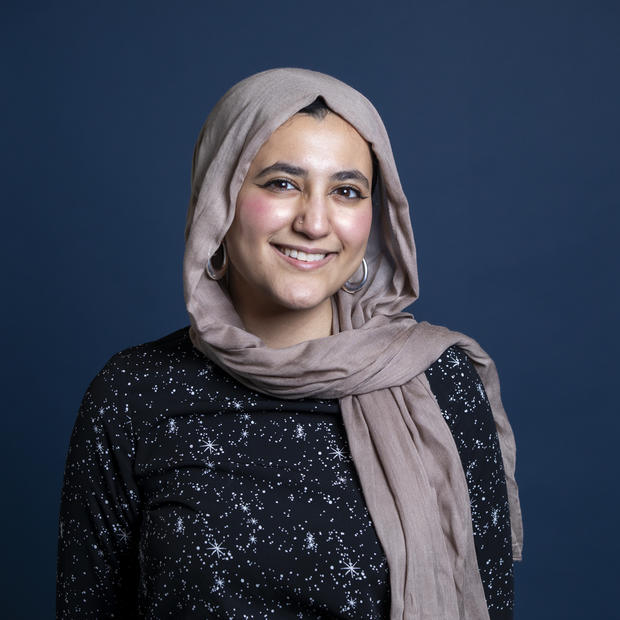Coates, in conversation with Slate’s Jason Johnson for a live podcast recording, drew parallels between the Black and Palestinian struggles for freedom, and called on both his audience and the media to stand face-to-face with American complicity in Israel’s war on Gaza.
“We owe it to ourselves as American citizens who are bankrolling this, to be absolutely clear on what we are bankrolling,” he said. Since Oct. 7, 2023, the U.S. government has authorized billions in military aid and weaponry to Israel, which, according to the latest numbers from the Gaza Health Ministry, has helped kill at least 34,000 Palestinians, approximately a third of whom were children. That number is an estimate, and does not account for the thousands of Palestinians who died trapped under rubble.
“I think one of the things that people are missing in this moment is just – in Gaza, with over 30,000 dead, we are seeing access to food used as a weapon, we are seeing hospitals bombed,” Coates said. “This is being done to secure an apartheid state, and that was so clear.”
In the culminating moments of his session, Coates expressed support for the pro-Palestinian protests sweeping college campuses across the country, calling them “one of the most democratic moments in American history” because the “Palestinian cause has never had this much gravity” in past years.
“I would have hoped that, if my child was on college campus right now – well, anywhere – in the country that he pledged his allegiance to, was bankrolling a bombing of hospitals, I want them disturbed,” he said. “I really, really hope that he would be upset about that.”
While Johnson and Coates were quite steeped in their discussion on the war on Gaza, Johnson also asked Coates his thoughts on other issues plaguing the media industry – with artificial intelligence being among the first words to roll off his tongue.
Coates replied by saying that large language models pose no threat to him, as simply put: Writing is a fundamental part of being human, and real writing is rooted in real experiences.
“I think writing is really, really important,” he said. “I think it's really, really important for people who are not professional writers to learn how to write. I think there’s a real direct relationship between writing and thinking.”
Watch the entire interview with Coates at the Cascade PBS Ideas Festival at 7 p.m. on May 19 or stream the session the next day on cascadepbs.org. Listen to all sessions on the Cascade PBS Ideas Festival podcast



